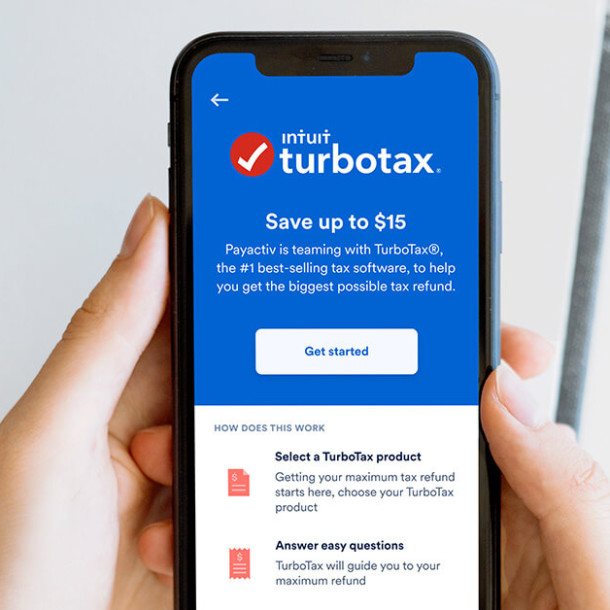
Advantages and Disadvantages of Borrowing Money from Family
At some period in their lives, most people find themselves in tight financial circumstances that cause them to consider borrowing money from relatives to tide them over. Often, this happens when the individual is faced with unforeseen situations such as the loss of a job, unexpected healthcare costs, or a broken-down vehicle.
Holidays are often when people feeling the pinch will turn to loved ones for support in covering the seasonal expenses. Similarly, “back to school” undoubtedly puts increased pressure on parents. Today, even more families are feeling the pinch, given rising inflation and the cost of living taking money out of their pockets.
According to a recent survey undertaken by the Census Bureau, some 25.6 million people relied on loans from friends and family to meet spending needs during the period March 30 to April 11. That figure was up from 19.1 million the previous year. The greatest increase in borrowing money from relatives and friends was among black Americans. The spike in friends and family loans in minority communities is because they often have less access to the traditional credit system.
When approached sensibly, borrowing money from family can prove to be a viable and straightforward option. However, there are times when this arrangement can end up serving neither party well and even lead to strained or severed relationships.
In this article, we’ll weigh the pros and cons of approaching family members for financial support.
What Is a Family Loan?
A family loan, as the term suggests, is any loan of money made from one family member to another. Family loans don’t involve traditional lending channels such as banks or credit unions.
It’s important to note that a family loan isn’t the same as a gift in the eyes of the IRS. The IRS defines it as the transfer of assets or money to another person without the lender expecting something of equal value in return. (More on the tax implications of family loans later.)
When Should I Consider a Family Loan?
Family loans should only be considered if the loan is mutually beneficial for both the borrower and the lender. These types of loans can be risky, and both parties need to be aware of the potential implications.
Advantages of Borrowing Money from Relatives
There are several obvious benefits to turning to a family member for a loan. These include:
1. Flexible Options
One of the biggest upsides to borrowing money from relatives is that you’re likely able to negotiate more flexible payment options and repayment arrangements.
This is in stark contrast to what happens when you take out a loan from a financial institution or seek a payday loan. These providers often demand security for the loan and mandate specific, regular repayments. If you default on these, you’ll be charged extra fees for late payment. Worse still, they could take legal action against you and dent your credit record.
2. Lower Interest Rates or Interest-Free Rates
If you approach a bank or other short-term lender for money – or take on credit card debt to fund your expenses – you’re inevitably committing yourself to high-interest rates. Of course, these lenders are in the business of making money, so it’s not unexpected. Still, some attach exorbitant interest rates to their loans, making repaying and finally settling the debt an uphill and protracted battle for many borrowers.
When you borrow money from a family member, they might waive any interest charges on their loan or at least be prepared to settle for a lower, more reasonable rate.
3. A Longer Repayment Period
Just as your family member might be more accommodating than a financial institution or payday lender about the interest they attach to your loan, there’s also a good chance that they’ll be more flexible about the loan repayment period.
It’s a good idea to be transparent and honest with the family member who has given you your loan if you find yourself in a situation where you cannot repay the amount owing at the pre-agreed time. Avoiding them or ignoring their calls will only breed resentment and could end up damaging the relationship irreparably.
4. Helping Someone You Love
For most people, borrowing money from a family member isn’t something they enjoy doing. Often, it’s accompanied by feelings of failure and shame. That being said, letting your guard down and allowing yourself to be vulnerable in front of a loved one is often an indirect way of deepening the bond of affection and respect between you.
Most people feel good about helping out someone who’s in trouble, especially if it’s their next of kin.
Disadvantages Of Borrowing Family Loans
If you’re considering going down this route, make sure you’ve considered all the potential downsides, which could include:
1. Lack of Clarity
The informal nature of family loans means they don’t involve the reams of paperwork usually associated with loans from banks and other institutions. This can cause a lack of clarity about the terms and result in misaligned expectations between the two parties.
Many people lending money to friends or family agree to move forward on the honor system, simply trusting that the borrower will pay them back in good time. However, it’s in the best interests of both parties to put in place a contract that outlines the agreed terms and conditions of the loan. This contract should include:
- The amount of money being borrowed
- The repayment terms and schedule (for example, payment frequency, payment amounts, and a final payoff date)
- The interest rate to be charged on the loan
- What happens if the person borrowing money stops making payments
- If there’s any penalty for the borrower for paying off the loan early
2. Social Awkwardness
Someone lending money to a family member money doesn’t want to remind the borrower about the debt and ask when they can expect to receive the next repayment. If you’ve borrowed money from a member of your family, go out of your way to keep the channels of communication open with this individual.
It’s not fair to make them feel awkward about breaching the subject with you. If you shut them out or change the subject, it could lead to feelings of anger and resentment on their part.
3. Damaged Relationships
Not everyone who agrees to lend money to a family member is necessarily happy about it. Some people may feel duty-bound or compelled to do it, especially if the borrower has young children to support or is about to have their home foreclosed on, for example.
Others may agree to front the loan but put themselves in a precarious situation of their own by parting with the cash. These scenarios don’t bode well for either party and could result in a breakdown of previously happy relationships.
4. Tax Implications
Under certain circumstances, a family loan might introduce tax issues for the lender, leading to unwelcome stress and an additional financial and administrative burden. While lenders are allowed to charge a reasonable interest rate, they also have to pay tax on the income earned from the loan.
Additionally, if the lender charges less than market interest rates, the IRS may deem their loan to be a gift. If this happens, the lender could be liable to pay gift taxes.
Tips on Approaching Friends or Family for Finance
None of us wants to be in a situation where we need to rely on someone else to pay our bills. But high debt, rising inflation, and low savings mean many people feel they have no choice but to go this route.
If you’ve weighed up these pros and cons and have decided that asking a family member or even a friend for a loan, make sure you do it the right way. Here are some tips to ensure that you go about it correctly and courteously:
- Approach the right person
- Sit down and discuss all the details of the loan
- Agree on the loan repayment timeframe
- Offer to pay a reasonable level of interest – but don’t over-commit yourself
- Once you’ve come to your lending agreement, put it in writing
- Make every effort to consistently make your repayments on time; where possible, set up a recurring transfer for payments
- Keep the lines of communication open with your lender
With some thought, mutual respect, and sensitivity, it’s entirely possible for family members to loan one another money from time to time without it fracturing the relationship.
Family Loan Alternatives
Generally, family lenders want to help someone they care about, but there are several other ways your family could help you without lending you money.
Here are several alternative options to consider:
1. Gifting
If someone in your family gives you money without the expectation of getting something of equal value in return, they’re essentially giving you a gift. This option will introduce less financial strain on the relationship.
2. Co-signing
Another option is for you and a family member to co-sign a loan that you take out. Your combined income and credit score would probably increase the chances of such a loan being approved. Of course, some family members will be reticent to go this route as they know that their own credit is at risk when they co-sign such agreements.
3. Business Loans
If you’re trying to start a new business, applying for a business loan might be a more sensible option than borrowing from your friends or family. There are several loan options when starting a business, including business credit cards, microloans (small loans that are generally less than $50,000), or regular business loans from banks or peer-to-peer lenders.
4. Becoming an Authorized User
Another way a family member can help you out without giving you money or entering into a formal loan agreement with you is by making you an authorized user on their credit card.
One advantage of this option is that when your family member adds you as an authorized user, the bank may report their information on your credit reports. If they have a strong credit history, you could actually see a boost to your credit score. Over time, improving your credit score could help you become more eligible for loans from other lenders.
5. Other Short-term Lending Options
If your family members can’t help you out, you may need to explore other ways to borrow money. These providers could include traditional banks and credit unions. Online lenders generally offer fast turnaround and an easy application process but bear in mind that their rates will likely be higher than what you’d find elsewhere. The same applies to payday loans, and our advice is to avoid these at all costs! A payday loan is a type of short-term borrowing where a lender will extend high-interest credit based on your income. Its principal is typically a portion of your next paycheck. However, what often happens with such loans is that when payday comes, many people are unable to fully pay it off due to other bills that need to be paid. This is when they end up rolling over their debt. The loan has a new repayment day, but the interest and fees stack up from the previous month, increasing the debt month to month. These debt traps can cause you long-term financial problems and damage your credit score.
6. Access On-Demand Pay with Earned Wage Access
One alternative to taking out loans altogether is Earned Wage Access (EWA). EWA platforms allow you to access some or all your earned wages before your next scheduled payday, offering a meaningful alternative to high-cost credit products, such as overdrafts or payday loans. You can access your earned wages in several ways. The funds can be loaded onto a debit or prepaid card, transferred to your bank account, or even picked up as cash at Walmart. Alternatively, you can use your earned wages to pay for services like Uber and Amazon and pay your bills directly in the app.
If you’re finding yourself in a tight financial spot, consider asking your employer about Payactiv’s Earned Wage Access services and financial wellness tools. Instead of asking your family members for money, you could access your own earned wages between paychecks to pay for unexpected emergencies. Access to on-demand pay and a financial management app with saving and budgeting tools, discounts, and free financial counseling can go a long way to putting you on the path to financial freedom.
Get Payactiv for your business
Related Articles
If you already know, you know But if you don’t, we’re here to talk about...
If you need quick cash, a payday loan can seem like a tempting offer You can...
Money management and teens don't usually go together, but with a little...
© 2025 Payactiv, Inc. All Rights Reserved
24 hour support: 1 (877) 937-6966 | [email protected]
* The Payactiv Visa Prepaid Card and the Payactiv Visa Payroll Card are issued by Central Bank of Kansas City, Member FDIC, pursuant to a license from Visa U.S.A. Inc. Certain fees, terms, and conditions are associated with the approval, maintenance, and use of the Card. You should consult your Cardholder Agreement and the Fee Schedule at payactiv.com/card411. If you have questions regarding the Card or such fees, terms, and conditions, you can contact us toll-free at 1-877-747-5862, 24 hours a day, 7 days a week.
** Central Bank of Kansas City does not administer, nor is liable for earned wage access.
Payactiv holds earned wage access services (EWA) license number 2591928EWA with the Wisconsin Department of Financial Institutions.
Apple and the Apple logo are trademarks of Apple Inc., registered in the U.S. and other countries. App Store is a service mark of Apple Inc., registered in the U.S. and other countries.
Google Play and the Google Play logo are trademarks of Google LLC.
Galaxy Store and the Galaxy Store logo are registered trademarks of Samsung Electronics Co., Ltd.




